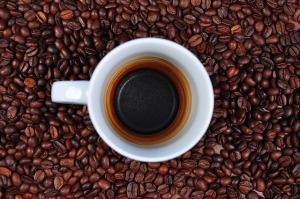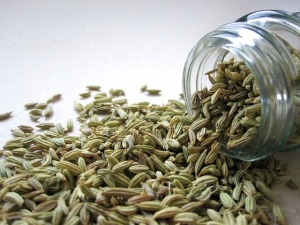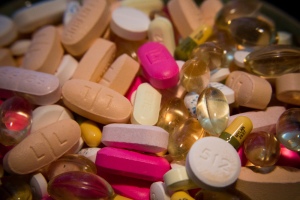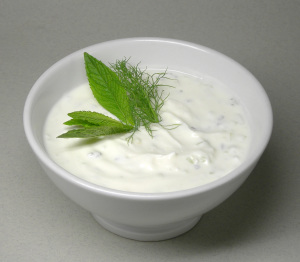Friday, December 11th, 2015 at
10:03 am
 Is a world filled with Wi-Fi signals a more dangerous, less healthy world? Yes, it is, according to a number of top experts who have spoken recently about the issue.
Is a world filled with Wi-Fi signals a more dangerous, less healthy world? Yes, it is, according to a number of top experts who have spoken recently about the issue.
In this video, Dr. Stephen Sinatra, one of the nation’s top “integrative” cardiologists, says that “wireless technologies” are “the greatest threat to health in this millennium.”
He goes on to say that, by wireless technologies, he means cell phones, microwave ovens, baby crib monitors and Bluetooth devices, among others. He also notes that the biggest danger being posed by the wireless technology is the near-constant damage done to cell membranes’ receptor sites, which help keep cells healthy and functioning.
Continue reading…
Wednesday, December 9th, 2015 at
7:04 pm
 Bisphenol-A (BPA), is a chemical widely used in plastic bottles and cans. It is associated with cancer, infertility, and fetal development issues. Once it enters the body, BPA behaves like estrogen, a human hormone. It disturbs the normal operation of certain genes and is harmful even at very low doses, such as those found in plastic bottles and cans.
Bisphenol-A (BPA), is a chemical widely used in plastic bottles and cans. It is associated with cancer, infertility, and fetal development issues. Once it enters the body, BPA behaves like estrogen, a human hormone. It disturbs the normal operation of certain genes and is harmful even at very low doses, such as those found in plastic bottles and cans.
Here are some practical tips to reduce your family’s BPA and BPS exposure:
Continue reading…
Wednesday, December 9th, 2015 at
2:03 pm
 Drinking a few cups of coffee a day may help people avoid clogged arteries – a known risk factor for heart disease – Korean researchers believe.
Drinking a few cups of coffee a day may help people avoid clogged arteries – a known risk factor for heart disease – Korean researchers believe.
They studied more than 25,000 male and female employees who underwent routine health checks at their workplace.
Employees who drank a moderate amount of coffee – three to five cups a day – were less likely to have early signs of heart disease on their medical scans.
The findings reopen the debate about whether coffee is good for the heart.
Continue reading…
Wednesday, December 9th, 2015 at
10:11 am
 Chronic stress has become epidemic in our society, where faster seems better and we pack more obligations into our ever-expanding schedules.
Chronic stress has become epidemic in our society, where faster seems better and we pack more obligations into our ever-expanding schedules.
Research has confirmed the havoc stress can wreak, with one meta-analysis involving 300 studies finding that chronic stress could damage immunity. Another study foundstressed-out women had significantly higher waist circumference compared to non-stressed women.
Experts have connected stress with blood sugar and belly fat. Chronic stress raises insulin, driving relentless metabolic dysfunction that becomes weight gain, insulin resistance and ultimately diabetes.
Insulin isn’t the only hormone that becomes out of balance with stress. Your adrenal glands release hormones like adrenaline and cortisol that flood your system, raising your heart rate, increasing your blood pressure, making your blood more likely to clot, damaging your brain’s memory center, increasing belly fat storage, and generally doing damage to your body.
Continue reading…
Monday, December 7th, 2015 at
6:03 pm
 Something magical happens moments after you start chewing on fennel seeds after a meal: the taste in your mouth changes, replacing the aftertaste of what you have eaten with a cool freshness. The pleasant, licorice-like aroma of the seeds drifts around you as you chew, calming the senses.
Something magical happens moments after you start chewing on fennel seeds after a meal: the taste in your mouth changes, replacing the aftertaste of what you have eaten with a cool freshness. The pleasant, licorice-like aroma of the seeds drifts around you as you chew, calming the senses.
The distinct taste of these little seeds combines with the release of volatile oils to give you that refreshing effect. But, the goodness of fennel seeds does not stop there.
Continue reading…
Monday, December 7th, 2015 at
2:07 pm
 About one in three Americans take a multivitamin. Is that helpful, harmful, or just a harmless waste of money? In 2011, the Iowa Women’s Health Study reported that multivitamin use was associated with a higherrisk of total mortality, meaning that women who took a multivitamin appeared to be paying to live shorter lives. But this was just an observational study—researchers didn’t split women up into two groups and put half on multivitamins to see who lived longer. All they did was follow a large population of women over time, and found that those that happened to be taking multivitamins were more likely to die. But maybe they were taking multivitamins because they were sick. The researchers didn’t find any evidence of that, but ideally we’d have a randomized, double-blind, placebo controlled trial, where thousands were followed for over a decade, with half given a multivitamin and half a placebo. That’s what we got the following year in 2012 with the Harvard Physicians’ Study II. And after a decade, the researchers found no effect on heart attack, stroke, or mortality.
About one in three Americans take a multivitamin. Is that helpful, harmful, or just a harmless waste of money? In 2011, the Iowa Women’s Health Study reported that multivitamin use was associated with a higherrisk of total mortality, meaning that women who took a multivitamin appeared to be paying to live shorter lives. But this was just an observational study—researchers didn’t split women up into two groups and put half on multivitamins to see who lived longer. All they did was follow a large population of women over time, and found that those that happened to be taking multivitamins were more likely to die. But maybe they were taking multivitamins because they were sick. The researchers didn’t find any evidence of that, but ideally we’d have a randomized, double-blind, placebo controlled trial, where thousands were followed for over a decade, with half given a multivitamin and half a placebo. That’s what we got the following year in 2012 with the Harvard Physicians’ Study II. And after a decade, the researchers found no effect on heart attack, stroke, or mortality.
The accompanying editorial concluded that multivitamins are a distraction from effective cardiovascular disease prevention. The message needs to remain simple and focused: heart disease can be largely prevented by healthy lifestyle changes.
Continue reading…
Monday, December 7th, 2015 at
10:04 am
 Emulsifiers, which are added to most processed foods to aid texture and extend shelf life, can negatively afect gut microbiota, causing intestinal inflammation that promotes the development of inflammatory bowel disease and metabolic syndrome, new research shows.
Emulsifiers, which are added to most processed foods to aid texture and extend shelf life, can negatively afect gut microbiota, causing intestinal inflammation that promotes the development of inflammatory bowel disease and metabolic syndrome, new research shows.
Inflammatory bowel disease (IBD), which includes Crohn’s disease and ulcerative colitis, afflicts millions of people and is often severe and debilitating. Metabolic syndrome is a group of very common obesity-related disorders that can lead to type-2 diabetes, cardiovascular and/or liver diseases. Incidence of IBD and metabolic syndrome has been markedly increasing since the mid-20th century.
The research, published the journal Nature, led by Georgia State University Institute for Biomedical Sciences’ researchers Drs. Benoit Chassaing and Andrew T. Gewirtz, suggests emulsifiers might be partially responsible for disturbing the balance of this natural bacterial population thus increasing the incidence of these diseases.
Continue reading…
Friday, December 4th, 2015 at
7:09 pm
 Losing weight isn’t always as easy as making healthier food choice and exercising more. Keep reading to find out how your job, travel schedule, and other factors affect your diet.
Losing weight isn’t always as easy as making healthier food choice and exercising more. Keep reading to find out how your job, travel schedule, and other factors affect your diet.
Travel
Packed travel schedule? All that jetsetting may put a damper on your weight loss efforts.
Your Dining Room Lighting
Want to keep dinner light? Turn off the bright floor lamp and light a few candles.
Your Job
Stressful meeting? It may negatively affect your weight loss…which is stressful.
Continue reading…
Friday, December 4th, 2015 at
2:06 pm
 You know soda’s not exactly good for you—but at the same time, it can be hard to resist. Its sweet taste, pleasant fizz, and energizing jolt often seems like just what you need to wash down your dinner, get you through an afternoon slump, or quench your thirst at the movies.
You know soda’s not exactly good for you—but at the same time, it can be hard to resist. Its sweet taste, pleasant fizz, and energizing jolt often seems like just what you need to wash down your dinner, get you through an afternoon slump, or quench your thirst at the movies.
But the more soda you consume (regular or diet), the more hazardous your habit can become. And whether you’re a six-pack-a-day drinker or an occasional soft-drink sipper, cutting back can likely have benefits for your weight and your overall health. Here’s why you should be drinking less, plus tips on how to make the transition easier.
The biggest risk for regular soda drinkers is the excess calories, says Lona Sandon, RD, assistant professor of clinical nutrition at the University of Texas Southwestern Medical Center. “The calories in regular soda are coming entirely from added sugar, and you’re not getting any value in terms of vitamins or minerals, or even good quality carbohydrates,” she says.
Continue reading…
Friday, December 4th, 2015 at
10:04 am
 You probably already expect garlic, chicken soup, or vitamin C-rich orange juice to help with cold and flu prevention and treatment. But now there’s a new food on the block that is kicking the butt of colds, flu, and other respiratory infections—yogurt. Exciting research shows that yogurt isn’t just for digestive health anymore.
You probably already expect garlic, chicken soup, or vitamin C-rich orange juice to help with cold and flu prevention and treatment. But now there’s a new food on the block that is kicking the butt of colds, flu, and other respiratory infections—yogurt. Exciting research shows that yogurt isn’t just for digestive health anymore.
Research published in the British Journal of Nutrition found that yogurt containing the probiotic strainLactobacillus casei DN-114001 had a significant effect on respiratory infections in three ways.
Continue reading…
 Is a world filled with Wi-Fi signals a more dangerous, less healthy world? Yes, it is, according to a number of top experts who have spoken recently about the issue.
Is a world filled with Wi-Fi signals a more dangerous, less healthy world? Yes, it is, according to a number of top experts who have spoken recently about the issue.









